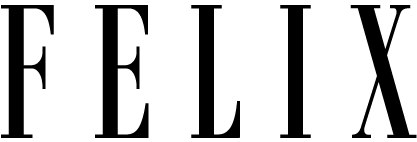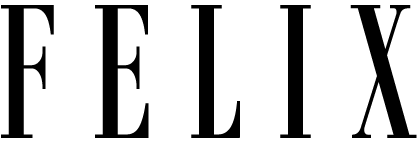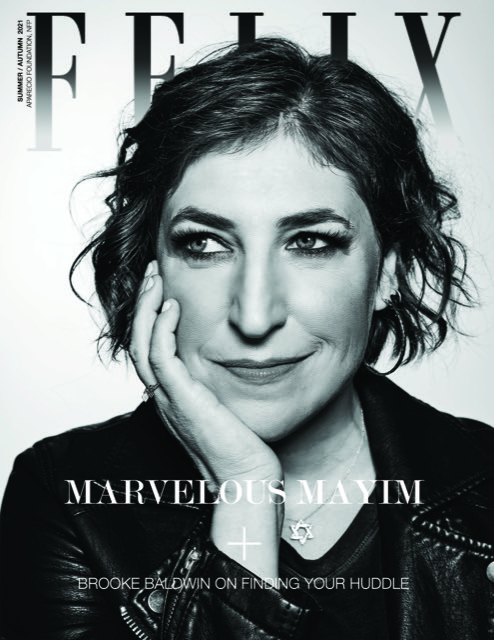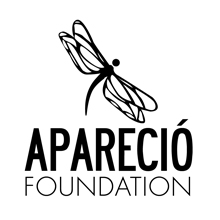Legion’s Navid Negahban Keeps Doing Things His Way
Photography by Michael Kraus.
Legion’s Navid Negahban Keeps Doing Things His Way
Photography by Michael Kraus.
Actor Navid Negahban remembers pre-revolution Iran as being almost a duplicate of the West. The ubiquitous influence of western society permeated each fragment of
Iranian society. He recalls his childhood as being quite similar to that of any European or American kid. Playing soccer, basketball, and volleyball, taking part in school plays and dealing with the frivolities of life like any other average kid during their pre-teen and teen years.
It was during those formative years that he discovered his knack for behavior that elicited attention; not just from a crowd his own age, but also people who were much older than him. “In all the family gatherings, I was kind of the entertainer. I was the kid who was talking too much, the kid who was telling stories. At the age of 8, I did a school
play and quickly realized that that is what I wanted to do.” This light-bulb moment gave him a clear vision of what he wanted to do in life, much to his
parents’ dismay: “I mean, they are a Persian family so they wanted their kid to be a doctor, engineer or a lawyer. So acting was supposed to be just a hobby from their point of view. When I became serious about it, they would always ask me When are you going to grow up?’ There was a bit of a resistance from their side.”
However, soon chaos erupted due to the Iranian Revolution of 1979. He remembers things began to change dramatically: “During that time everybody was trying to find themselves. We, as kids, were trying to discover ourselves. There were so many ideologies and people saying we should be this way or that way. After the Revolution I remember we used to buy music CDs and movies in the black market because they were not allowed to sell them in stores. And then the war began. A lot of people went into the army. Many did not even come back. So at that time, we were not thinking about music, movies or what we were wearing. We were thinking about whether or not we will wake up the next morning.”
Because of the Revolution the thriving Persian Cinema withered and the emphasis put on arts and entertainment diminished instantly causing many established actors to leave the
country. Those who chose to stay had to readjust to the strict standards of the new regime. He remembers: “They had to create a new language for the cinema to be able to say what they wanted to say without getting themselves in trouble. So, the movies became more like metaphors creating stories in which the audience can find their own answers. It was great training for all the writers and filmmakers to be able to say what they wanted to say and to find a new way to express themselves.”
In Mashhad, Iran, around 1983 he was introduced to pantomime through a friend who happened to be deaf. “I learned from them. I played with them but I never performed on the stage with them. I was just a curious kid who wanted to learn. Later Negahban decided to travel to Germany in pursuit of his acting career and where he was able to begin doing theater. After spending some time there he was able to move to the U.S., only now with the bigger ambition of making it in Hollywood. He first lived through a frustrating, decade-long struggle in which the journey of making a name for himself became even more hellish because of Hollywood’s rampant whitewashing at that time. He recalls:
“In Germany it didn’t matter where you came from as long as you could create then illusion, as long as you could create the character. It didn’t matter what color you were, or what your background was. That was the kind of environment that I was used to before coming to America. Here I used to ask myself, why can’t I play the doctor or the banker? Why can’t I be the immigration officer? I mean, there are people from Iran, Iraq, and Afghanistan all over the U.S. who have those professions,so why doesn’t Hollywood let me play
those characters?”
He swiftly recalls a particular, memorably unpleasant incident. He was working on a project in which he was scheduled to play the role of an Iranian. As the work proceeded the producers suddenly decided that he did not look Iranian enough and instead cast an Irish actor to play the part. He relates this bewildering event this way:
“They dyed the man’s hair and made his skin darker. I had to coach him on how to speak with an Iranian accent and I was sitting there questioning myself Why am I doing this? Why am I even here?” Despite having experienced these regrettable whitewashing experiences Negahban does believe things have started to get better.
“Now, people in the industry are acting more responsibly. They do their research and they are more aware. They are also trying to be more responsible with the stories that they are telling.”
In 2003, because of a short film titled, Boundaries, Negahban began to gain prominence in the U.S. after the film was screened at several festivals across the country. Since then, he has acted in numerous TV shows, such as Homeland, 24, and the current hit show, Legion. He also has many film credits to his name, including American Sniper, 12 Strong, and the upcoming live-action Disney movie, Aladdin, in which he plays the Sultan. Even after all these years, acting still gives him the same adrenaline rush it did years ago.
“Everyday. Every second. I’m so happy to be on set. You know, some actors complain about trailers and the space that they need to relax, but I don’t care about any of that. I just carry a little apple box with me and I move with the set, the director and the camera. I love people and I love the way people interact with each other, and I know just by observing them and learning from them, it’ll make me a richer
person.”
Today, Negahban is content. He has no regrets. He has lived his life the way he wanted to and that’s what he wants his legacy to be.
“I’ve always loved the Frank Sinatra song, I Did It My Way. Good or bad, I just want to be remembered as a man who did do it his way. I never look back and say something was a mistake. I always look back and say, that was great lesson. Just move forward, find yourself and be who you are — not what they say you are.”










